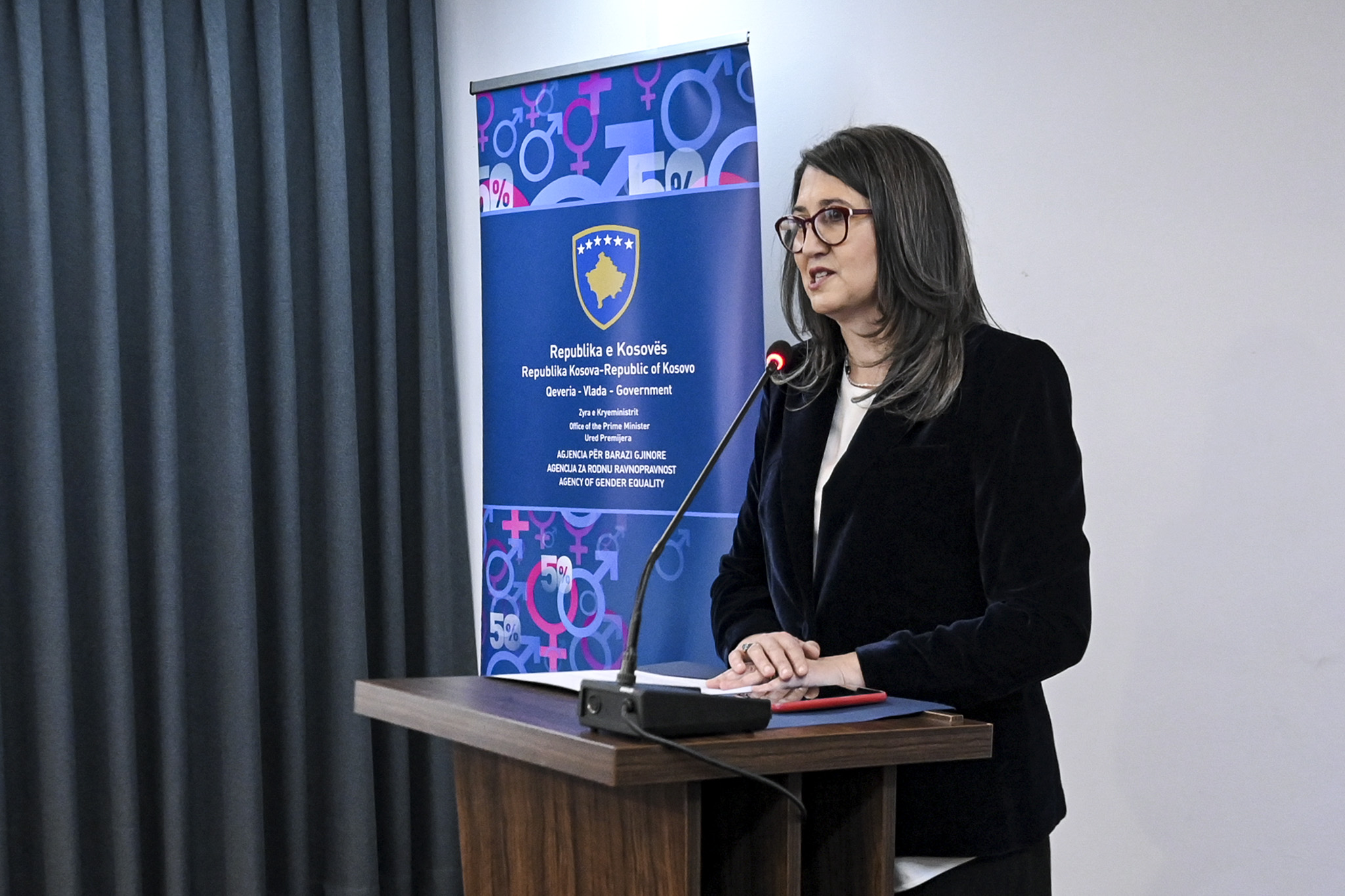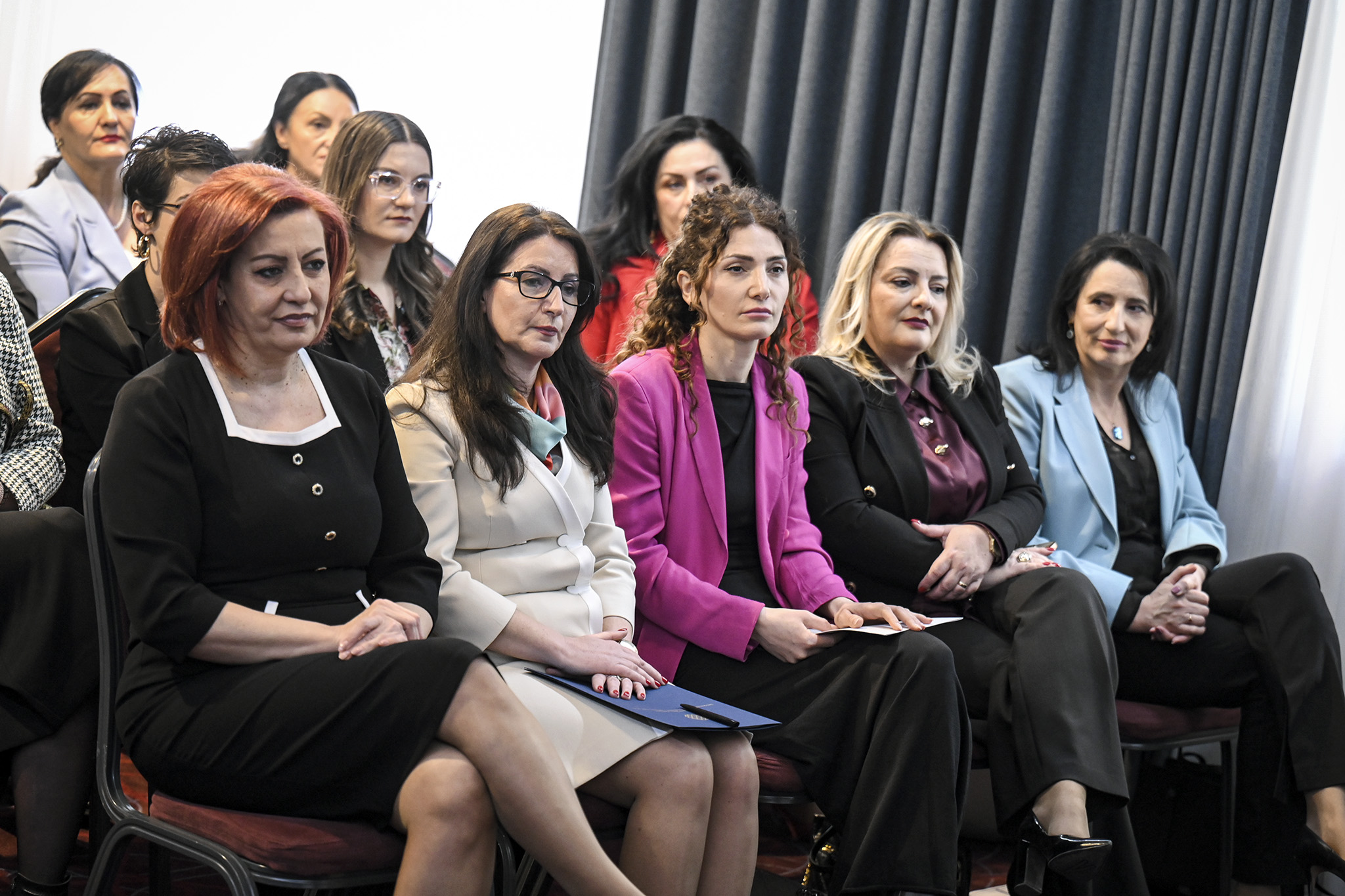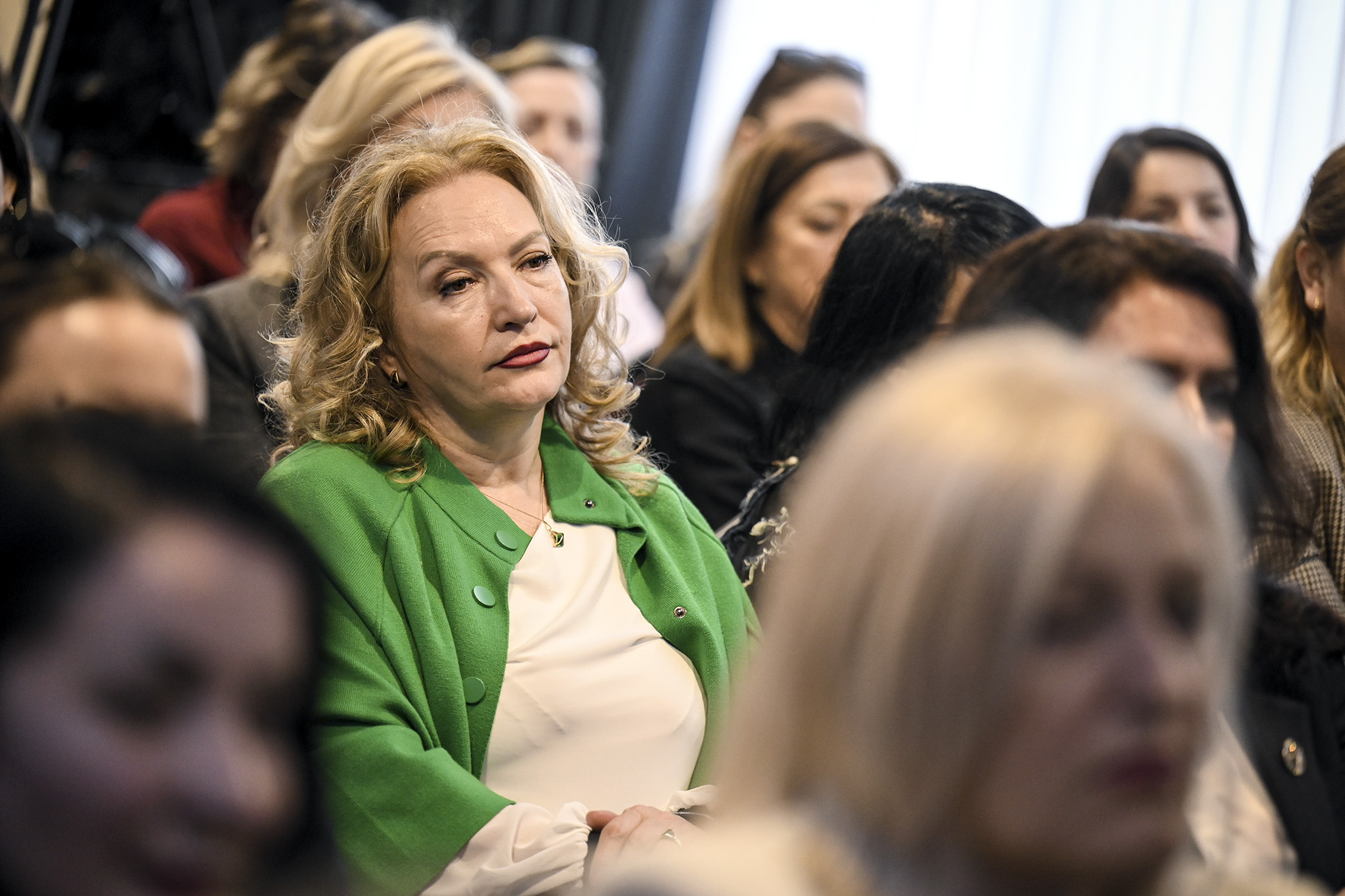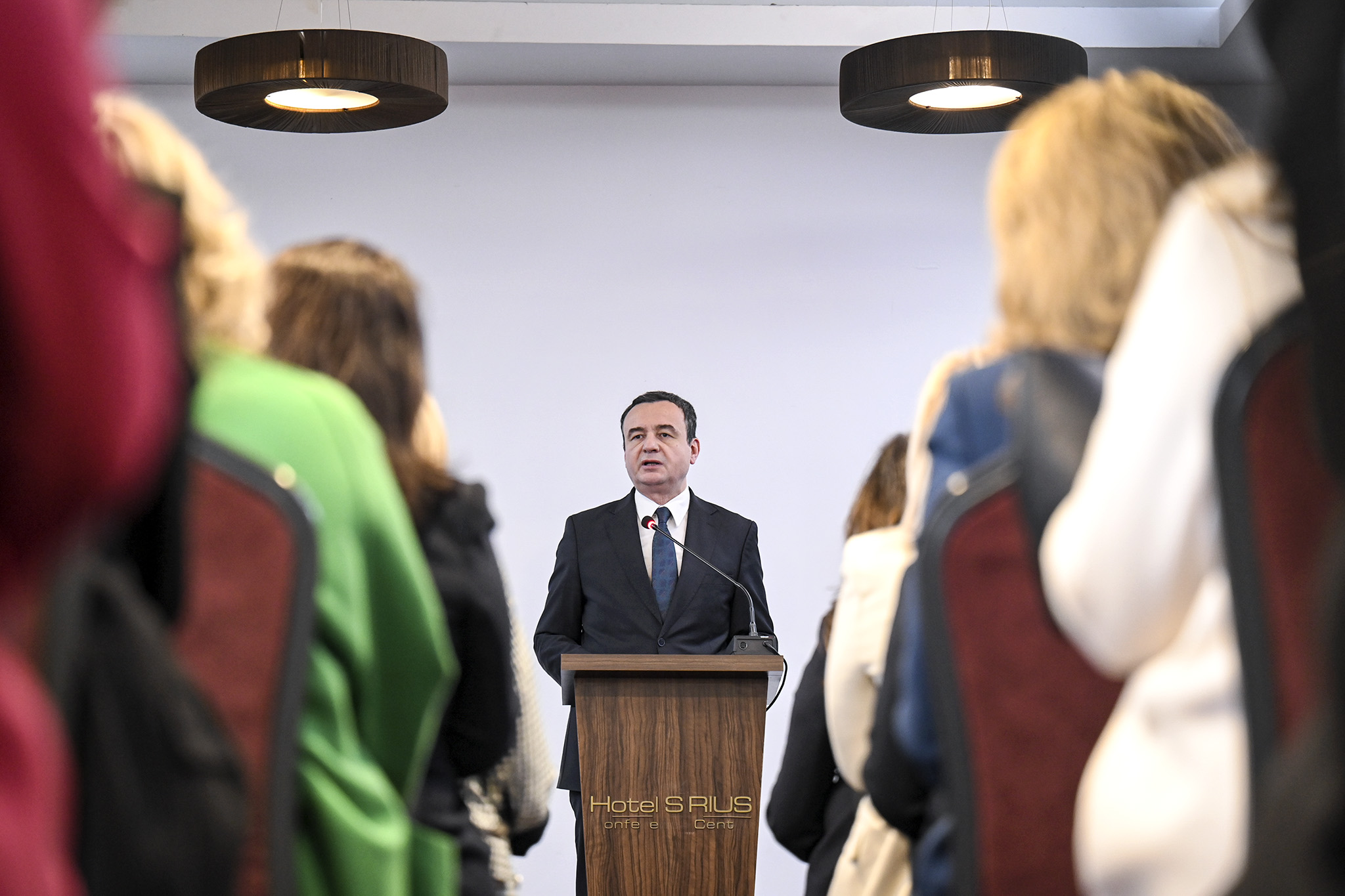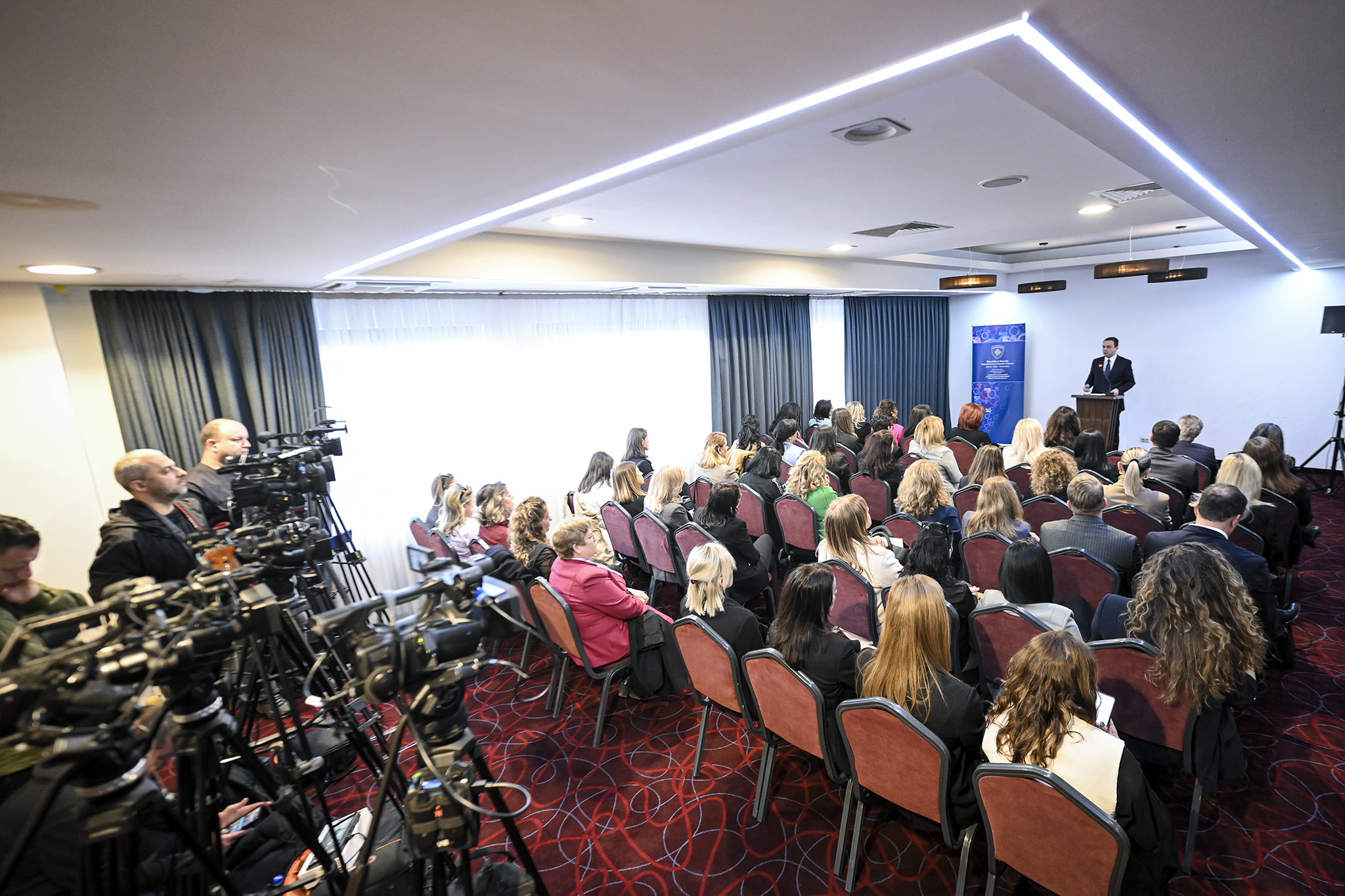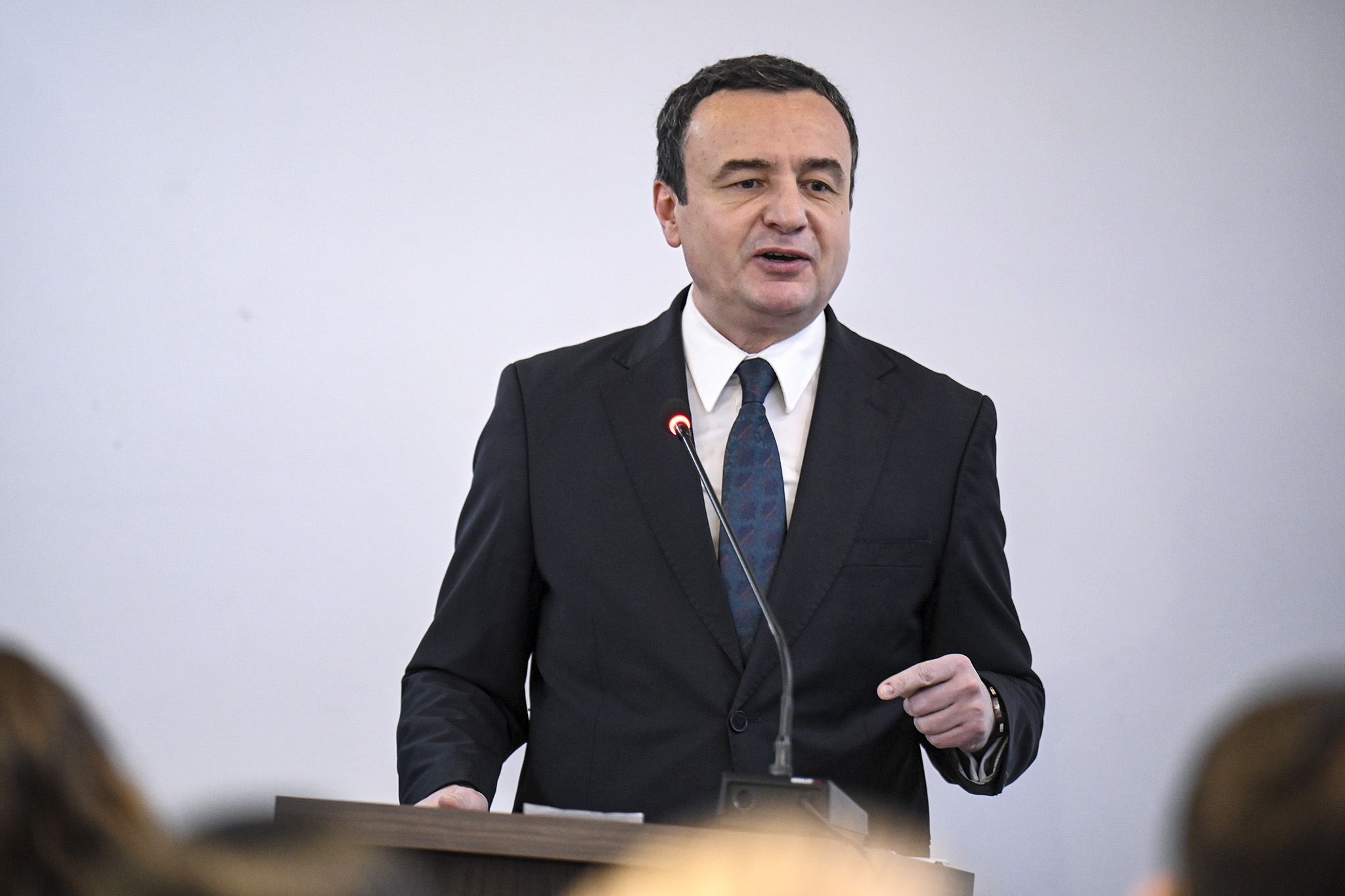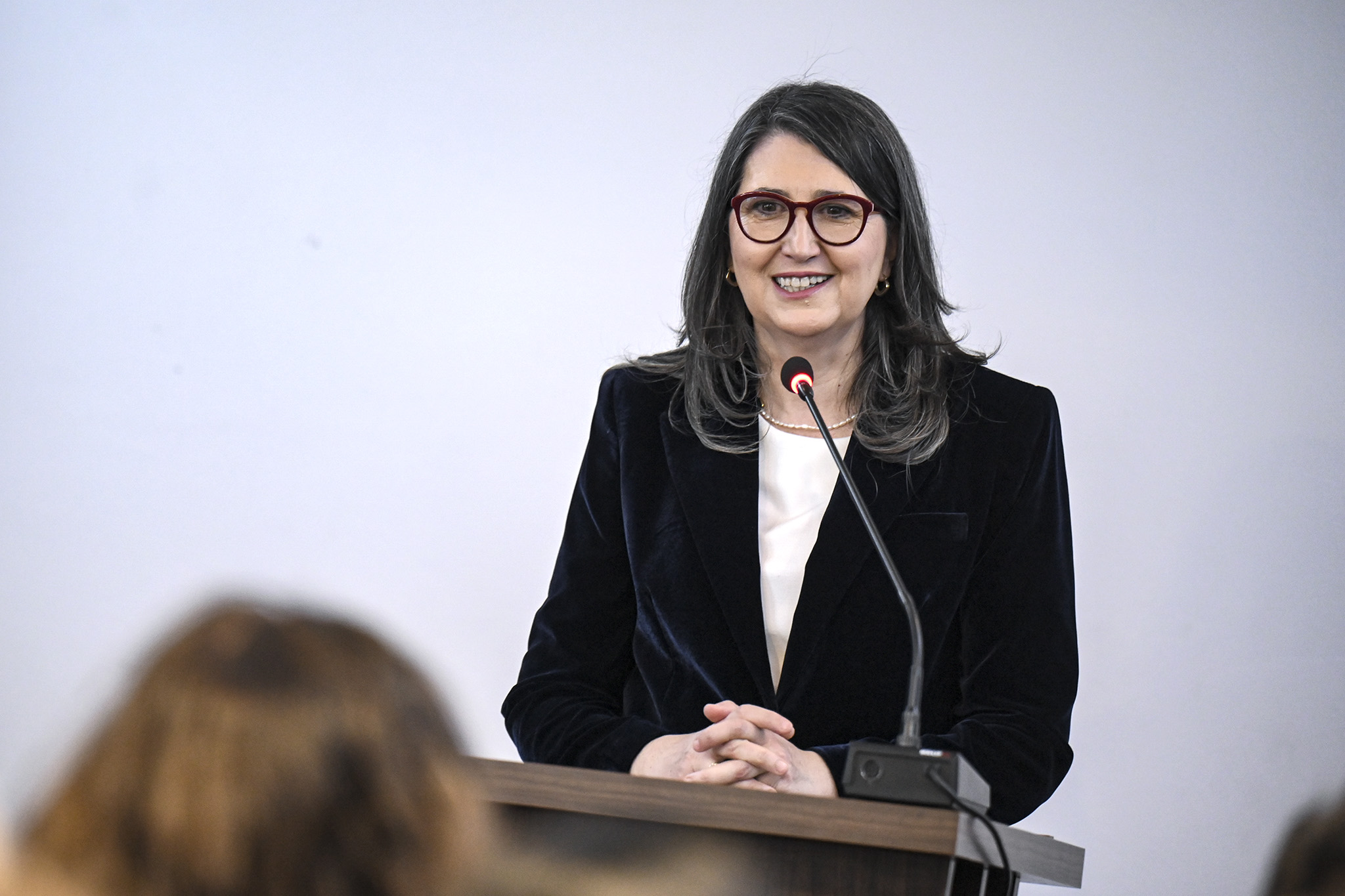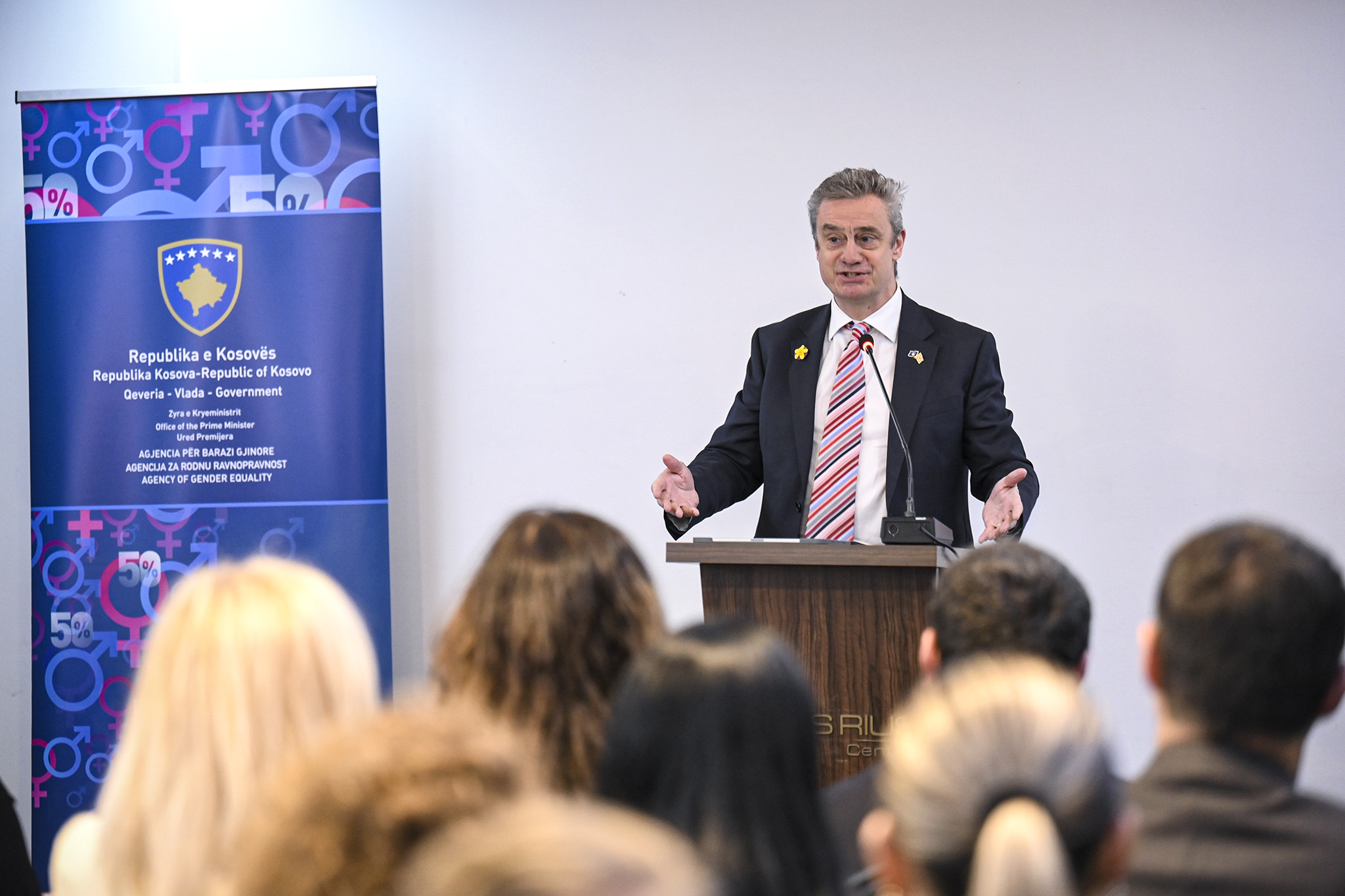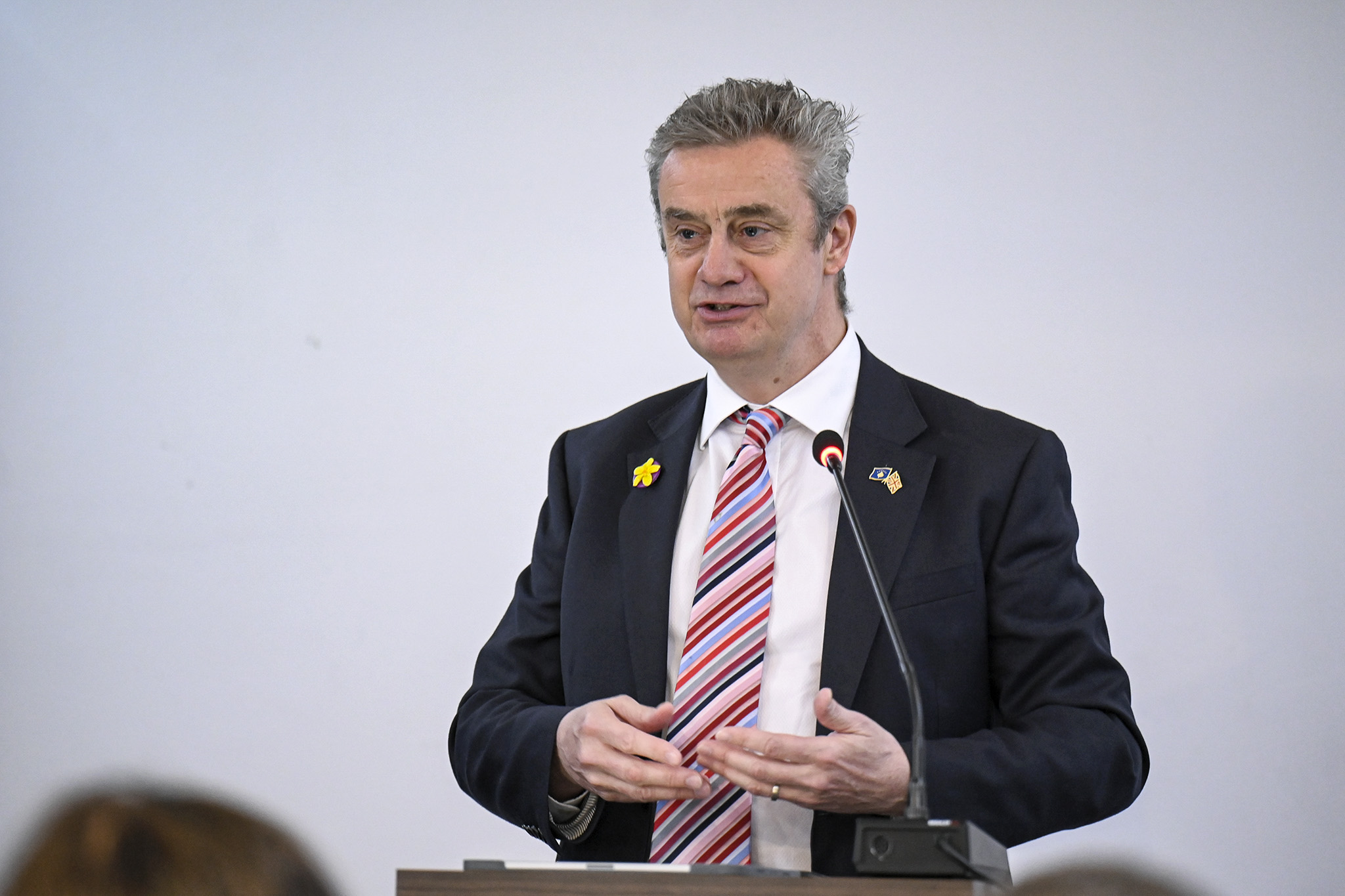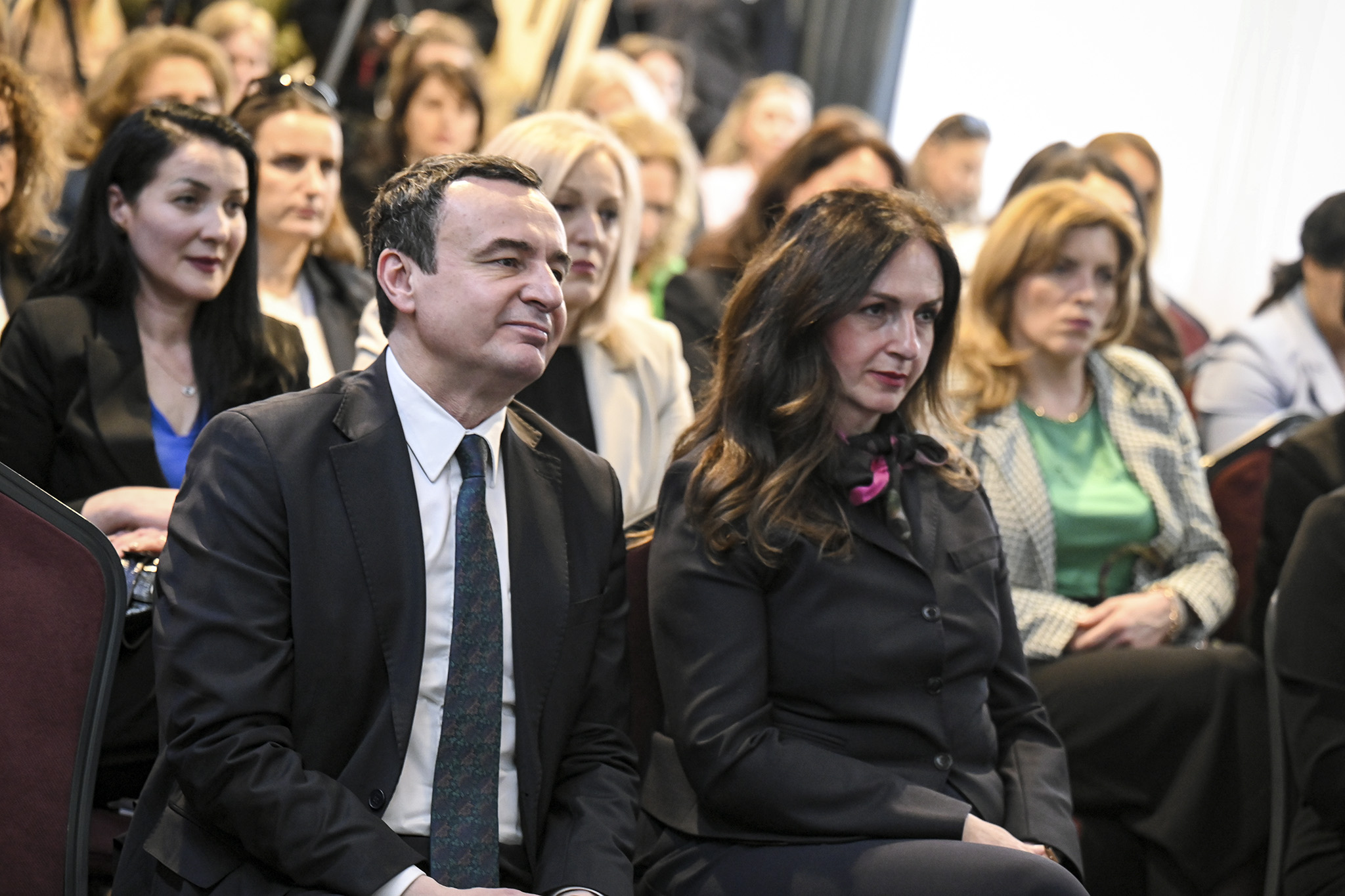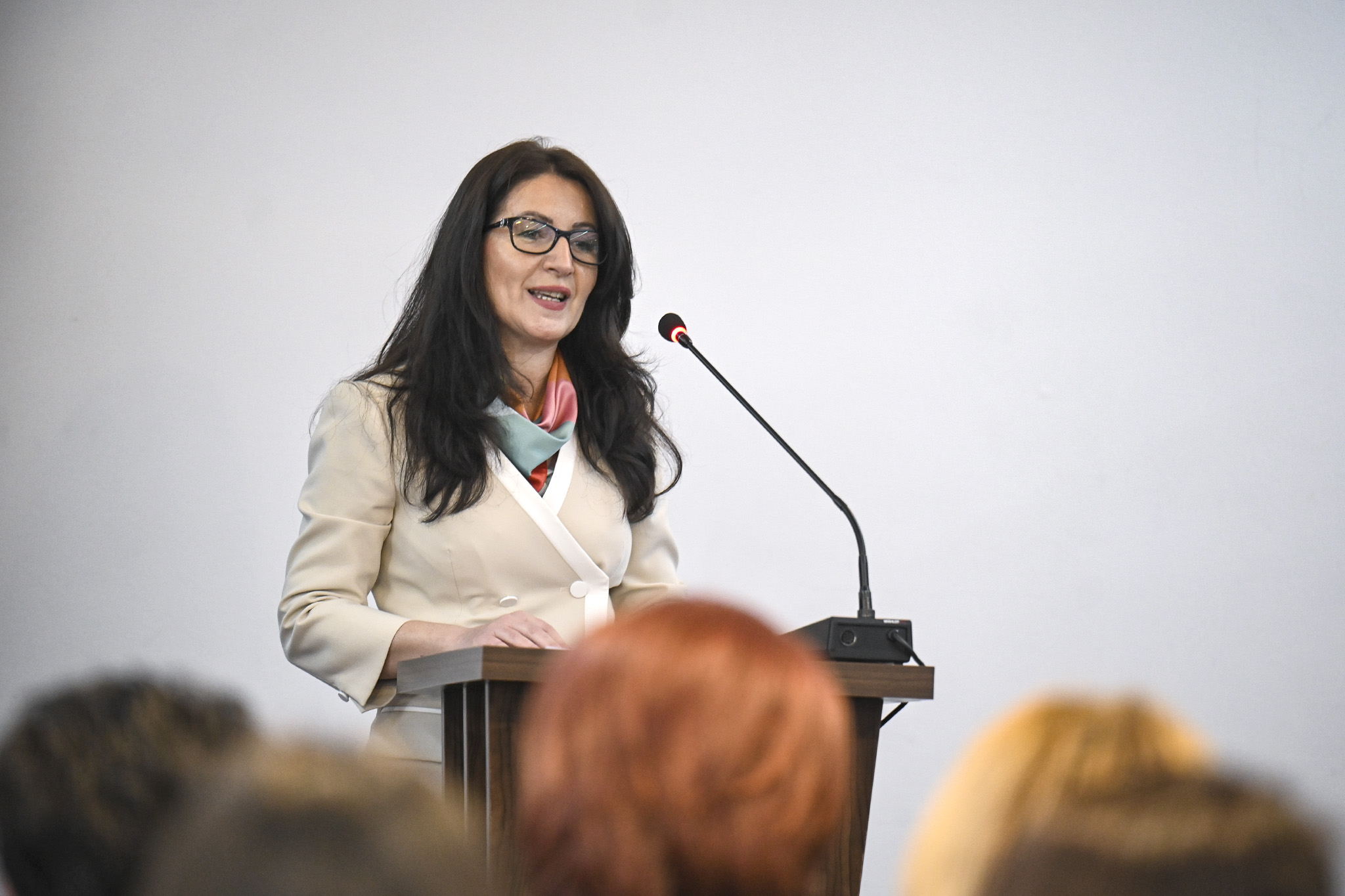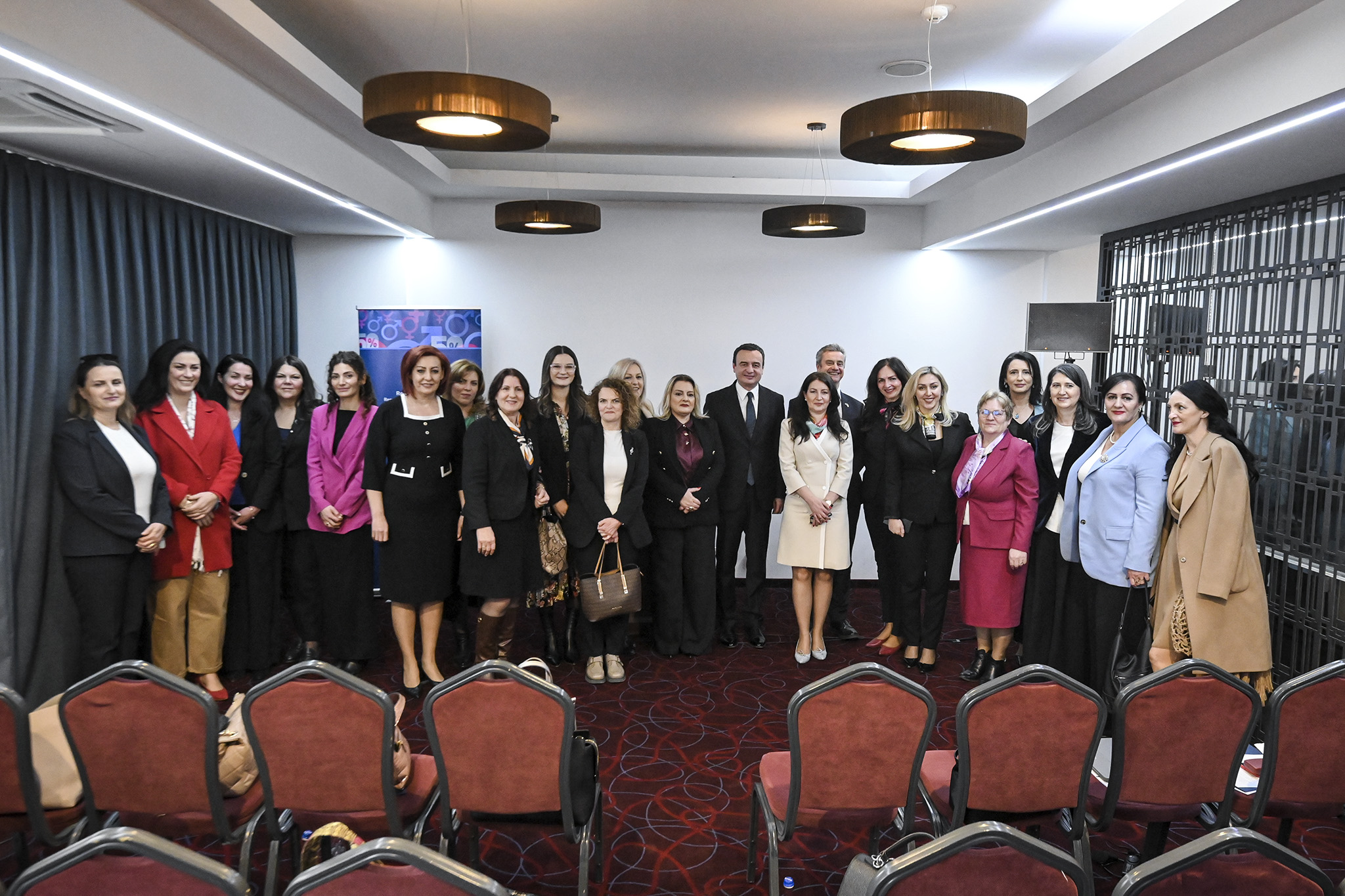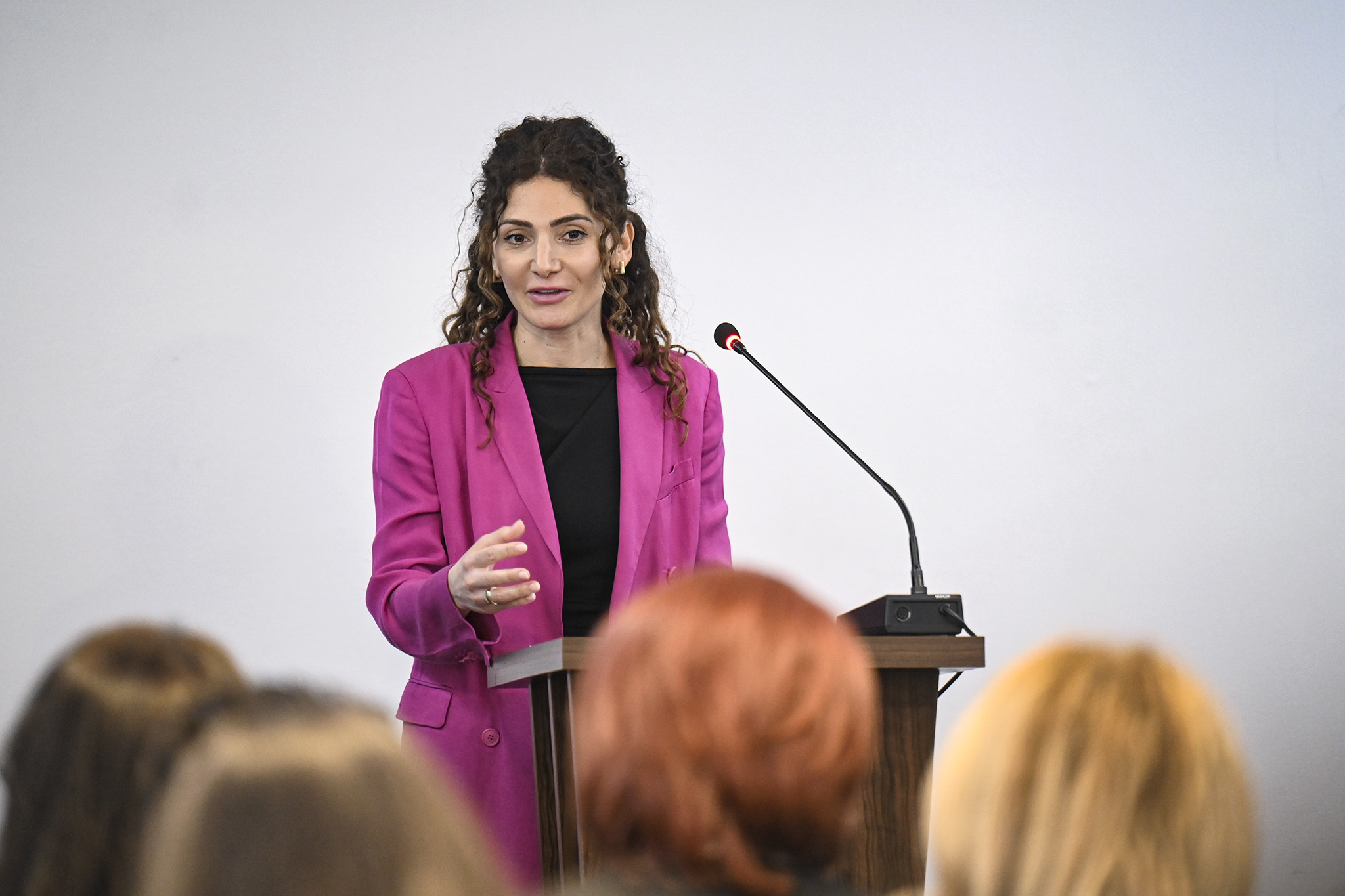Pristina, 10 March 2025
On the occasion of International Women’s Day, the Prime Minister of the Republic of Kosovo, Albin Kurti, participated today in the presentation of the Network of Women in Decision-Making Positions in Public Administration and Independent Institutions, organized by the Agency for Gender Equality, within the Office of the Prime Minister.
The Prime Minister began his speech by extending his congratulations for International Women’s Day, 8 March. He stated that our country has undoubtedly made significant strides and opened new paths toward gender equality and institutional justice, although we are still far from a society where women do not live in the shadow of misogyny as a phenomenon, under pressure that escalates into violence, or discrimination that leads to exclusion.
“Our steps as a state demonstrate both a political focus and institutional consistency. We know that many challenges remain. Our country’s experience carries an undeniable truth, and we must often reflect on our past to ensure it never repeats itself. A society emerging from prolonged occupation and a war marked by genocide has achieved collective freedom through the many liberating battles fought by both women and men. Now, however, it seems that the next challenge is the battle for individual freedom. In fact, we must be equal not because we have no differences, but precisely because we do have differences,” he stated, after listing some of the actions and supportive policies for women’s empowerment in the country.
At this event, the Network of Women in Decision-Making Positions in Public Administration and Independent Institutions was presented. Its aim is to encourage and support women in their participation in high leadership positions, promote the presence of successful women leaders, and advocate based on the principles of meritocracy and performance. Prime Minister Kurti expressed his gratitude for the invitation to this Network, which was established with the support of the Embassy of the United Kingdom in Kosovo.
He called on the women of this Network not to think only about their own journey, but also to turn their attention to young women who are just starting on this path. At the same time, he urged that we affirm positive examples as much as we can and as often as we can. On this occasion, among the positive examples, he highlighted the Chief Executive Officer of the Post of Kosovo, Nora Rraci, and the Chief Executive Officer of Telekom of Kosovo, Burbuqe Hana.
“The Post of Kosovo had cumulative losses of 5.3 million euros over five years, and in 2024, under the leadership of Chief Executive Officer Nora Rraci, it recorded a profit of 350,000 euros.” On the other hand, Telekom of Kosovo, after eight years of cumulative losses amounting to 149 million euros and a loss of 11 million euros in 2021, achieved a cumulative profit of 15 million euros in 2023 and 2024. So, Nora Rraci and Burbuqe Hana manage millions, and do you know what? They are proving to be successful, and we must continuously affirm these success stories, these remarkable achievements, together,” said the Prime Minister.
At the end of his speech, the Prime Minister referred to a study that found that women in politics and women in administration do not perform worse than men, but the initial doubt about their performance is greater.
“Therefore, with a shared institutional and gender solidarity, let us commit to envisioning a different future and start rethinking the spaces we create. Spaces that do not replicate the past, but build a new future. Spaces where leadership is not merely a continuation of power, but a means to uphold dignity and bring about equality, both in participation and in decision-making. Although time moves forward in a linear direction, the path of our commitment, with dedication and solidarity, becomes time that we gain, not time that we lose,” the Prime Minister concluded.
Full speech of Prime Minister Kurti:
Honorable Ms. Emilija Rexhepi, Deputy Prime Minister of the Government of the Republic of Kosovo, responsible for Minority Affairs and Human Rights,
Honorable Ms. Arberie Nagavci, Minister of Education, Science, Technology and Innovation,
Honorable Ms. Edi Gusia, Executive Director of the Agency for Gender Equality,
Honorable Mr. Jonathan Hargreaves, Ambassador of the United Kingdom to the Republic of Kosovo,
Honorable Ms. Vlora Spanca, Auditor General of the Republic of Kosovo,
Honorable Ms. Leonita Shabani Mullarama, Secretary General at the Ministry of Economy,
Honorable ministers and deputy ministers, and representatives of local institutions,
Honorable attendees,
Ladies and gentlemen,
Honored guests, members of the administration, and women leaders,
Happy 8 March! May every day be a day of life – of a good life – that flourishes daily, not just with the flowers of 8 March. Kosovo has undoubtedly made significant strides and opened new paths toward gender equality and institutional justice, although we are still far from a society where women do not live under the shadow of misogyny as a phenomenon, under pressure that escalates into violence, or discrimination that leads to exclusion.
History and numerous scientific studies show us the deep connection between peace and women in leadership – a connection that is not merely statistical but also evidence that where women lead, life is fairer and better, for women and men alike, for society as a whole. Nevertheless, the obstacles that women face are greater, deeper and more invisible than those faced by men. Often, it is the very structure of power that closes doors to women, keeping them outside decision-making spaces and away from the time of participation – these injustices are neither accidental nor rare but rather daily realities, embedded in both public and private life.
Gender is not merely a simple attribute but an entire system that influences politics and planning, administration and management, and the very way governance is exercised. And yes, women are less likely to misuse public funds, yet more likely to bear the greater burden of work and responsibility for the common good. When women lead, they do not lead merely to hold a position but also to redefine the very meaning of leadership.
Various studies demonstrate that women are less prone to corruption than men, and citizens everywhere, especially in our country, despise corruption the most.
Addressing gender injustices and inequalities has been at the core of our work as a government, and during this first full mandate, we have taken many steps that are far from insignificant.
• We have directly supported the employment of over 12,000 women;
• Among those recruited into the public administration, 48% were women in 2023, while in 2024, that number rose to 63%;
• We supported the employment of over 4,000 individuals (55% of whom were women) who had no other employed family members through the “Government for Families” program;
• We provided on-the-job training and employment support for 239 individuals with disabilities (120 of whom were women and girls);
• We launched an employment measure for women who are victims of violence;
• Regarding maternity and child allowances: over 400,000 children and nearly 70,000 new mothers have benefited, two-thirds of whom were unemployed, and approximately 100,000 women in total have opened a bank account for the first time in their lives as a result of these allowances;
• We have supported women in agriculture with 10 million euros through subsidies and grants, recognizing that women are far more engaged as workers and owners in agriculture and livestock farming than often assumed;
• We have provided support for 711 businesses (30% of which are women-owned) with export potential through grants totaling 20.5 million euros and subsidized investment loans for 450 businesses with 12.4 million euros through Measure 2.1;
• We have increased women’s access to property: the affirmative measure for free joint property registration in the name of both spouses resulted in 17,592 properties being registered last year, compared to only 105 in 2016; and
• We have provided additional financial support for women homeowners or co-owners of houses or businesses under energy efficiency schemes (with over 180 women beneficiaries);
Our steps as a state demonstrate both political focus and institutional consistency. We know that many challenges still remain. Our country’s experience carries an undeniable truth, and we must often reflect on our past to ensure it never repeats itself. A society emerging from prolonged occupation and a war marked by genocide has achieved collective freedom through the many liberating battles fought by both women and men. Now, however, it seems that the next challenge is the battle for individual freedom. In fact, we must be equal not because we have no differences, but precisely because we do.
And although today women in Kosovo hold more leadership positions than ever before, obstacles remain—and these are not only legal or political barriers, but ones embedded in the very way power operates: they are structural, within the spaces where decisions are made; they are cultural, in the way women are judged for the words they speak, the way they talk, dress, and carry themselves; and they are institutional, as the system that shaped the past continues, to varying degrees, to dictate the present. These are barriers within the labor market, within the institutions where the future is shaped – barriers both visible and invisible, reinforced by silence that keeps women on the margins and by obstacles that demand a far greater effort to overcome.
Policymaking must have a clear objective: to fully represent the shared social needs and to create effective mechanisms to address them, even when those needs are distinct. Over the years, and especially after the independence of the Republic of Kosovo, our institutional policies have tended to align with best European practices, however, not infrequently, they have lacked the necessary cultural context and historical perspective of our country, which can affect their effective implementation. When it comes to sound gender policies, the Republic of Kosovo, through the Istanbul Convention – one of the Council of Europe’s key treaties – has committed to high international standards, and this Convention is recognized for its holistic approach, just as every policy should in fact be. Therefore, institutions must act inclusively, in a multi-sectoral and well-coordinated manner. Each instance and link in the chain has its own role and responsibility, whether at the central or local level, and especially in connection with external mechanisms that serve as partners.
At this point, something has been initiated and is in progress, but the needs remain significant. Escalations within the workplace are a dimension that requires intensified and entirely different action, both in the public and private sectors, particularly in the private sector. In the coming months and years, esteemed women, as women’s employment increases, it is women’s rights in the workplace that must be protected and advanced. State solidarity with women and women’s solidarity with one another, in employment and in the expansion of work opportunities, is our next priority. No matter how good the laws are and how professional the inspectorates may be, they cannot replace unions. In the near and medium-term future, women’s rights will depend more than ever on the strengthening of unions as organizations and of unionism as a movement.
And for employment to be well-organized, education and training are essential. We have also invested in the younger generation because we know that no society can move forward if young men and women remain trapped in waiting for opportunities that never come. Through Superpuna, over 16,000 young people have been employed, 51% of whom are young women and girls. Through Kosovo Generation Unlimited, nearly 3,000 young people have gained work experience, with over 60% of them being women and girls. Additionally, more than 6,800 scholarships have been awarded in the fields of Science, Technology, Engineering, and Mathematics (STIM), with 6,600 of them benefiting young women and girls. But these are not just numbers presented in reports; they are real stories – stories of young women and men who today work, create, contribute, and benefit, and who envision a different Kosovo from the one they inherited.
I thank you for this invitation to this Network, supported by the Embassy of the United Kingdom, which is not merely a discussion forum but a space where women will come together to share the burden, find collective strength, and take action.
For this reason, today, I want to invite the women of this Network not to think only about their own journey but also to turn their attention to the young women who are just beginning on this path. To those who have yet to have doors opened for them, to those who are looking for an example, a word of encouragement, or a helping hand. Because leadership is not complete, and participation is not sustainable, if it does not consider those who will come after us.
At the same time, let us affirm positive examples as much as we can and as often as we can. On this occasion, allow me to highlight that in public enterprises, 50% of appointed members since 2021 have been women, compared to just 10% in 2017. And it is precisely this increased appointment of women in public enterprises that has also led to their strengthening. Let me take just two examples today – Nora Rraci at the Post of Kosovo and Burbuqe Hana at Telekom of Kosovo.
It is remarkable that the Post of Kosovo, which had cumulative losses of 5.3 million euros over the previous five years, in 2024, under the leadership of Chief Executive Officer Nora Rraci, recorded a profit of 350,000 euros. On the other hand, Telekom of Kosovo, after eight years of cumulative losses amounting to 149 million euros and a loss of 11 million euros in 2021, achieved a cumulative profit of 15 million euros in 2023 and 2024. So, Nora Rraci and Burbuqe Hana manage millions, and do you know what? They are proving to be successful, and we must continuously affirm these success stories, these remarkable achievements, together.
According to a study, women in politics and women in administration do not perform worse than men, but the initial doubt about their performance is greater. Therefore, the problem is the prejudice of others, not the results of women. Those who doubt women are the problem, not the women whom some perceive as suspects.
Therefore, with a shared institutional and gender solidarity, let us commit to envisioning a different future and start rethinking the spaces we create. Spaces that do not replicate the past, but build a new future. Spaces where leadership is not merely a continuation of power, but a means to uphold dignity and bring about equality, both in participation and in decision-making. Although time moves forward in a linear direction, the path of our commitment, with dedication and solidarity, becomes time that we gain, not time that we lose.
Thank you!
Last modified: March 14, 2025
